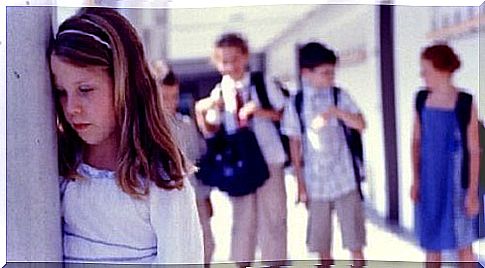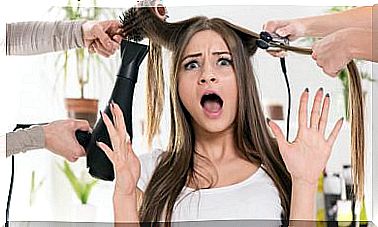Social Anxiety Or Phobia: 5 Helpful Tips
People with social anxiety fear other people’s reactions and avoid situations in which they might be observed or in which many people are present.

We are social beings from birth to death. So that we can all develop our abilities, we need the exchange with our surroundings and our fellow human beings. The social anxiety or phobia keeps sufferers from life and away from relationships with others.
This anxiety disorder, which occurs very often, affects social behavior, because those affected are afraid, for example, of being perceived by others as embarrassing, ridiculous or different. This has a very negative effect on their everyday life and leads to great suffering.
What is Social Anxiety or Phobia?

Many people are nervous or shy in everyday situations, for example in the first days of school, when they have to ask passers-by for directions, to meet up with others or to ask a salesperson something. However, people with social anxiety panic in these situations.
Therefore, they start to avoid these situations and places that make them feel uncomfortable. But over time they shield themselves more and more from their environment. This affects their academic performance, their profession and of course their relationships with other people.
Social anxiety and its symptoms
It is very difficult to diagnose a social phobia because the sufferer is usually trying to hide their feelings. Children with social anxiety can sometimes become aggressive or even indifferent. However, you will feel different symptoms within yourself.
The United States National Institute of Mental Health lists the following symptoms:
- Fear of being humiliated in public,
- the fear of being judged by others
- and panic when speaking in public.
- Afraid that the others might find out what is going on.
- Excessive sweating, shaky voice, stuttering, reddening of the face, nausea and nausea
- Palpitations and tachypnea
- Dizziness and muscle tension
- They avoid any activity or situation where they need to interact with others or be in public.
- Negative feelings and pessimism
In severe cases, all of the above symptoms can occur. Those affected therefore avoid all social events: Young people, for example, do not go to parties, do without appointments and do not speak or eat with classmates.
When adults need to exchange an item in a store, eat at a restaurant, need a public bathroom, or maintain eye contact, they are tormented.
But there are ways to alleviate social anxiety and lead a peaceful, fulfilling life. Read on, we have some tips for you.
5 recommendations against social anxiety

To help overcome social anxiety and feel better in public, consider the following recommendations :
- Get professional help immediately: If you have symptoms that suggest a social phobia, you should definitely seek help from an expert. If you observe social phobia in your child, you definitely need to seek advice from a psychologist.
- Set priorities: If you suffer from social anxiety, you will forego a lot of activities because your phobia means that you cannot enjoy them. It is important to organize your time well and find energy for your hobbies, sports, etc.
- Write a diary: Make a note of the events every day, because with this you can help the psychologist to analyze the causes of your fears and to initiate appropriate treatment.
- Avoid harmful substances: In some cases, people with social anxiety resort to drugs or alcohol to free themselves and make it easier to interact with others. This leads to dependence, which further exacerbates this problem.
- Psychiatric drugs and therapy: If necessary, your doctor will prescribe specific drugs and / or cognitive behavioral therapy.
You can overcome your fears!
You can learn to control your fears and thereby enjoy your life a lot more. Talk to someone you trust about your problem and get help from a doctor or psychologist to successfully overcome your fears!
The sooner you implement these recommendations, the better the results will be. In no case should you isolate yourself or think that your fears are unimportant: any problem that prevents normal life needs to be diagnosed and treated.









